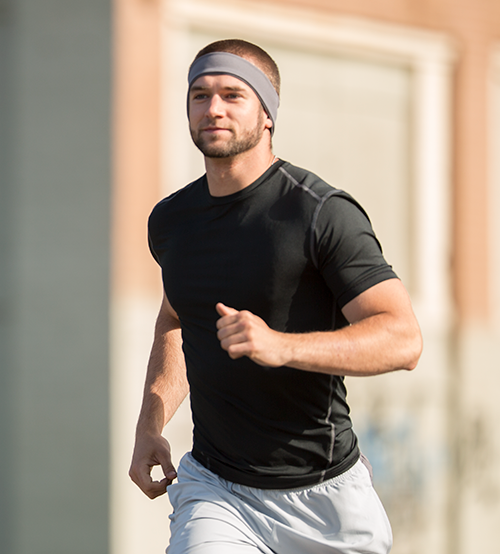
How Sleep Affects Your Workout: Working Out on No Sleep
If you have ever attempted working out on no sleep, you may have a feel for how sleep affects your workout. As you will see, science has something to say about that feeling as well. In a study from the ACSM, 12 athletes took part in a series of mental and physical tests after getting a full night's sleep -- and then repeated the same tests after a night of no sleep.
Study Advises Against Working Out on No Sleep

Researchers who took part in the ASCM study on how sleep affects your workout found that participants could engage in passive activities, such as reading, watching movies, or listening to music, but struggled to do anything active. After working out on no sleep, test subjects fatigued sooner and reported feeling as though they had to exert more energy to complete the same workout they did on a full night of sleep.
Not surprisingly, the study confirmed working out on no sleep leads to poorer athletic performance. In addition, it was also found that being sleep-deprived leads to the mind causing the body to “give up” when it would otherwise be physically capable of going on.
That’s because your body relies on glycogen, energy stored in the muscles, to fuel your workouts. When glycogen runs low that's when you should start feeling fatigued. However, the study found working out on no sleep caused the muscles to grow tired before their glycogen stores had run out.
Whether you like to run, walk, jog, do yoga, or go to the gym -- a good night of sleep is paramount for optimal performance. Not to mention sleep is the body's time to repair itself from the physical stress it goes through in a day. Better sleep equals better recovery. Working out on no sleep means your body hasn't fully recovered from your workout the day before. And if you put your body through another strenuous workout the day after not getting a good night's sleep, the effects will only begin to multiply.
The More You Control Sleep, The Better Your Athletic Recovery And Improvement In Performance.
That’s what science has to say about how sleep affects your workout, but there’s no greater expert on how sleep affects your workout than you. Try using a journal or a fitness app to document how much sleep you got in a given day, and document how your daily workout felt after that amount of sleep. This will paint a clearer picture over time illustrating how improving your sleep can lead to improved athletic performance.
It’s pretty clear how sleep affects your workout, and how you should make it a priority to get more sleep, and better quality sleep. The following tips will help you find methods of getting more sleep that are simple and repeatable.
How to Get More Sleep
If you know the root cause for, or you suspect, why you're not getting enough sleep at night, then you already know what to do to get more sleep. For example, you may need to turn Netflix off earlier in the night, put the video games down, or cut back on your caffeine intake.

No comments:
Post a Comment